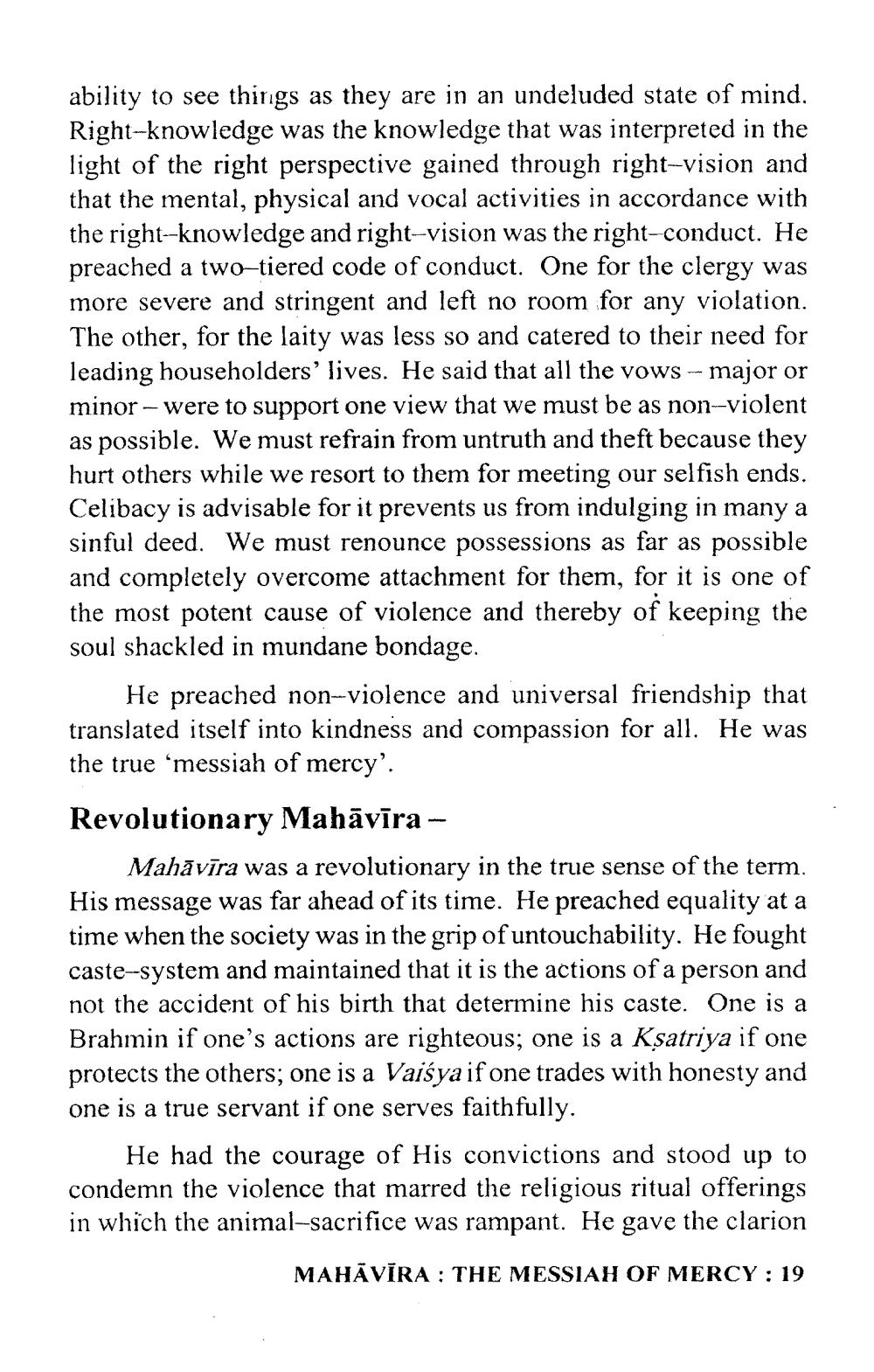________________
ability to see things as they are in an undeluded state of mind. Right-knowledge was the knowledge that was interpreted in the light of the right perspective gained through right-vision and that the mental, physical and vocal activities in accordance with the right--knowledge and right-vision was the right-conduct. He preached a two-tiered code of conduct. One for the clergy was more severe and stringent and left no room for any violation. The other, for the laity was less so and catered to their need for leading householders' lives. He said that all the vows -- major or minor -- were to support one view that we must be as non-violent as possible. We must refrain from untruth and theft because they hurt others while we resort to them for meeting our selfish ends. Celibacy is advisable for it prevents us from indulging in many a sinful deed. We must renounce possessions as far as possible and completely overcome attachment for them, for it is one of the most potent cause of violence and thereby of keeping the soul shackled in mundane bondage.
He preached non-violence and universal friendship that translated itself into kindness and compassion for all. He was the true 'messiah of mercy'.
Revolutionary Mahāvīra -
Mahāvīra was a revolutionary in the true sense of the term. His message was far ahead of its time. He preached equality at a time when the society was in the grip of untouchability. He fought caste--system and maintained that it is the actions of a person and not the accident of his birth that determine his caste. One is a Brahmin if one's actions are righteous; one is a Ksatriya if one protects the others; one is a Vaiśya if one trades with honesty and one is a true servant if one serves faithfully.
He had the courage of His convictions and stood up to condemn the violence that marred the religious ritual offerings in which the animal-sacrifice was rampant. He gave the clarion
MAHĀVĪRA : THE MESSIAH OF MERCY : 19




